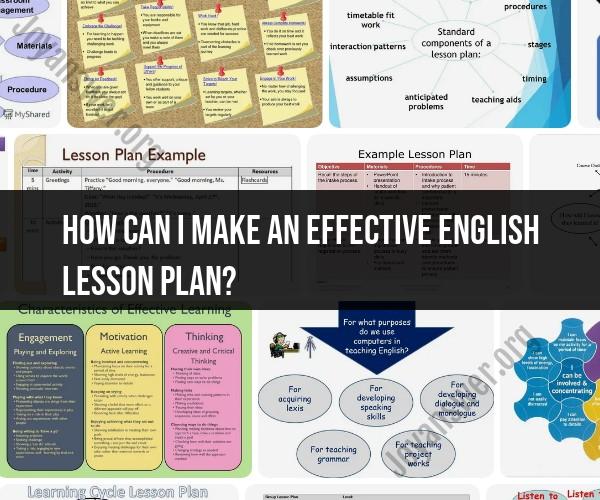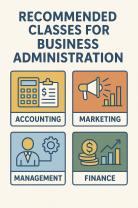How can I make an effective English lesson plan?
Designing well-structured and engaging English lesson plans is essential for facilitating effective learning experiences. In this comprehensive guide, we'll explore strategies and tips to help educators create lesson plans that inspire student engagement and foster language acquisition.
Understanding the Importance of Lesson Planning
Lesson planning serves as the roadmap for teaching. It helps teachers organize content, set clear objectives, and ensure that instructional time is utilized effectively to meet learning goals.
Setting Clear Learning Objectives
Begin your lesson plan by defining specific and achievable learning objectives. Objectives guide the focus of the lesson and provide a clear target for both teachers and students.
Assessing Student Needs
Identify the needs and proficiency levels of your students. Differentiate instruction to accommodate diverse learning styles, abilities, and backgrounds within your classroom.
Selecting Engaging Activities
Choose a variety of activities that cater to different learning preferences. Incorporate discussions, group work, role-play, multimedia resources, and hands-on projects to keep students actively engaged.
Sequencing and Flow
Organize the lesson content in a logical sequence that builds upon previous knowledge and leads to the achievement of learning objectives. Maintain a smooth flow to enhance comprehension and retention.
Incorporating Assessment and Feedback
Integrate formative assessments throughout the lesson to gauge student understanding. Provide timely feedback to guide their progress and address any misconceptions.
Utilizing Technology and Resources
Integrate technology tools and educational resources to enhance the learning experience. Digital platforms, online resources, and multimedia can enhance engagement and facilitate deeper understanding.
Addressing Different Language Skills
Balance lessons that address listening, speaking, reading, and writing skills. Provide opportunities for students to practice and develop each skill within a meaningful context.
Encouraging Interaction and Collaboration
Design activities that encourage peer interaction and collaboration. Cooperative learning fosters communication, teamwork, and the exchange of ideas among students.
Reflecting and Adjusting
After delivering the lesson, take time to reflect on its effectiveness. Identify what worked well and areas that need improvement. Use this feedback to refine future lesson plans.
Conclusion
Crafting effective English lesson plans requires thoughtful consideration of objectives, activities, and student needs. By implementing these strategies, educators can create dynamic and impactful learning experiences that empower students to develop their language skills and thrive academically.












